
San Pedro Atocpan es uno de los doce Pueblos Originarios de Milpa Alta. Se cree que se estableció entre los años 120 y 140 después de la era común. Se dice que los pobladores son descendientes de una de las siete tribus Nahuatlacas que vivieron en las orillas sur del lago.
La palabra Náhuatl, “Atocpan” significa “en tierra fértil,” y ésta ha sido principalmente una comunidad agrícola desde su historia más antigua. Durante el periodo postclásico, la población dependía de Xochimilco. A principios del periodo colonial, paso al control de los franciscanos. Se cree que comenzaron a trabajar en la iglesia en 1570. El enorme atrio da una idea del tamaño de la población que se espera que se reúna para los los ritos religiosos y los días festivos.
El antiguo monasterio, directamente al sur del templo, tiene una antigua vivienda enclaustrada. Es un sitio histórico para visitar por sí solo.
San Pedro se convirtió en municipio en 1864. Lo siguió siendo hasta después de la Revolución Mexicana. El pueblo fue escenario de escaramuzas menores a pesar del estridente apoyo de Milpa Alta a las tropas Zapatistas. El pueblo se beneficiaría más tarde, durante las reformas agrarias que siguieron en la década de 1920. Sin embargo, más allá de ser escenario de lo ya relatado, el pueblo permanecería prácticamente igual hasta la década de 1960: cocinas tradicionales de leña y casas iluminadas por velas.
San Pedro Atocpan se volvió famoso cuando algunas familias comenzaron negocios en casa dedicados a la producción y venta de mole. La salsa de chocolate despegó y la Ciudad de México se convirtió en su mayor consumidor. Para mediados de la década de 1970, el pueblo producía entre 8 y 10 toneladas de esta salsa al día. Pronto, el 90% de la población se dedicaba a la producción y venta.
Los visitantes internacionales querrán dirigirse a La Plaza San Martín. La ornamentada plaza alberga la capilla de San Martin Caballero y es la capilla original dedicada al Señor de las Misericordias. Los residentes locales conocían la figura como Yencuictlalpan, y el nombre permanece para el quiosco en el parque.
Por supuesto, los viajes al actual Santuario del Señor de las Misericordias ofrecen vistas extraordinarias del valle de la ciudad.
Los visitantes que viajan en transporte público deben llegar a la estación de Metro Taxqueña. Desde ahí, tomarán un autobús de la línea 81 o el RTP desde el norte de la estación.
La mayoría de los taxistas te llevarán por las autopistas federales Mexico-Tlayacapan y después Mexico-Oaxtepec.
 +52 (55) 5844 2290
+52 (55) 5844 2290
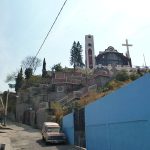
Cercano a 0.17 kms.
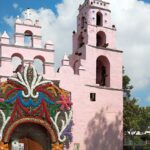
Cercano a 0.34 kms.
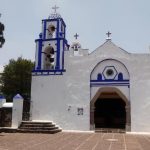
Cercano a 0.46 kms.
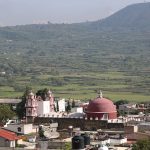
Sede del gobierno local, la cultura y el comercio en Milpa Alta.
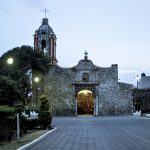
Uno de los más pintorescos de los 12 pueblos originarios de Milpa Alta, Oztotepec es una visita obligada en cualquier recorrido por la región.
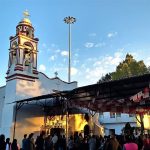
Un hermoso lugar para iniciar tu viaje a Milpa Alta...
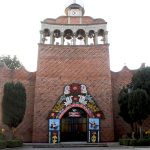
El más joven de los pueblos originarios de Milpa Alta con un gran festival de globos.
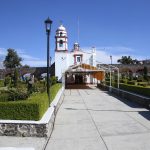
Uno de los pueblos originarios más alejados de Milpa Alta, este se encuentra en las faldas del volcán Tlaloc.